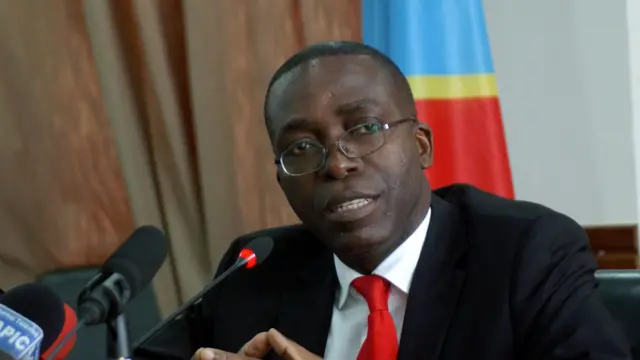In a landmark ruling that marks one of the highest-profile anti-corruption convictions in the Democratic Republic of Congo (DRC), former Prime Minister Augustin Matata Ponyo has been sentenced to hard labour after being found guilty of embezzling millions of dollars during his time in office. The sentencing, handed down by the Constitutional Court in Kinshasa on May 18, 2025, is being viewed as a major test of the DRC’s commitment to tackling corruption among its political elite.
Conviction Tied to Failed Agricultural Project
The case centers on allegations that Matata misappropriated funds during a high-profile agricultural modernization scheme known as the Bukanga-Lonzo project. Launched in 2014 during his tenure as prime minister under former President Joseph Kabila, the $285 million initiative was intended to improve food production and reduce import dependency by developing large-scale agro-industrial parks.
Instead, the project collapsed, and investigations later revealed that over $200 million had vanished without tangible results. A government audit and subsequent parliamentary inquiry in 2021 uncovered evidence of large-scale financial mismanagement, triggering legal proceedings against Matata and several other former officials.
Constitutional Court Finds Matata Guilty
The Constitutional Court, which under Congolese law is competent to try high-level officials for crimes committed while in office, found Matata guilty of embezzling public funds and sentenced him to a punishment described as “hard labour.” Although the specifics of the sentence were not fully detailed in the court’s public summary, the term typically refers to forced labor under penal supervision a harsh sentence rarely applied to top-ranking politicians in the DRC.
Two other defendants, including former Economy Minister Patrice Kitebi and South African businessman Grobler Christo, were also convicted in connection with the same case. Prosecutors alleged that funds earmarked for Bukanga-Lonzo were funneled through a network of shell companies and fake service contracts, leading to widespread losses to the state.
Matata Denies Wrongdoing, Plans Appeal
Matata, who served as prime minister from 2012 to 2016 and later became a senator, has consistently denied any wrongdoing. He has described the case as politically motivated and framed it as an attempt to derail his political ambitions. Matata had declared his intention to run in the 2023 presidential election, though his campaign never gained significant traction.
Speaking through his lawyers after the verdict, Matata announced plans to appeal the ruling and called the trial “a travesty of justice.” His defense team claims that the Constitutional Court lacked jurisdiction to try him, arguing that he should have been tried in an ordinary criminal court after his resignation from public office.
Significance for Anti-Corruption Efforts in the DRC
The sentencing is being watched closely both domestically and internationally as a possible turning point in Congo’s battle against systemic corruption. President Félix Tshisekedi, who came to power in 2019, has repeatedly pledged to root out corruption, which has long plagued the country’s institutions and stifled development despite its vast mineral wealth.
Critics, however, say corruption remains entrenched at nearly every level of government, and successful prosecutions of senior officials have been rare. Some human rights and anti-corruption organizations have welcomed the verdict but cautioned that the true measure of progress will be whether similar cases are pursued with equal determination regardless of political affiliations.
Reactions and Political Implications
The ruling has generated mixed reactions across the DRC. Supporters of the current government hailed it as a milestone in accountability and the rule of law. “This sends a clear message that no one is above the law,” said a government spokesperson following the verdict.
However, members of the opposition have expressed skepticism, questioning whether the case was selectively prosecuted for political convenience. “Justice in the DRC is often politicized,” said one opposition senator. “We support anti-corruption efforts, but they must be impartial and transparent.”
Matata’s sentencing also raises broader questions about the fate of other high-ranking officials implicated in similar scandals, including those still in government. Many Congolese citizens are watching closely to see whether this marks the beginning of a genuine clean-up or remains an isolated incident.
Conclusion
The conviction of former Prime Minister Augustin Matata Ponyo for corruption and his sentencing to hard labour represents a significant moment in Congolese politics. Whether it serves as a watershed moment in the fight against corruption or remains a politically charged exception will depend on the consistency, transparency, and impartiality of future prosecutions. For a nation long burdened by impunity and governance failures, this ruling offers both a symbolic victory and a test of will.








